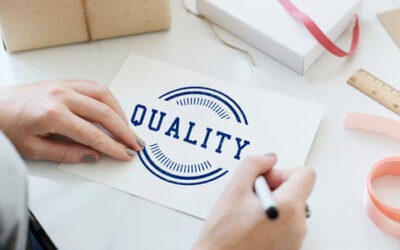Mental Health at Work: Understanding and Improving Well-Being in the Workplace
In today’s fast-paced work environments, mental health issues such as stress, anxiety, and burnout are increasingly common. This post explores the connection between work and mental health, identifies key stressors affecting employees, and offers practical strategies to create supportive and mentally healthy workplaces. By prioritizing mental well-being, organizations can enhance productivity, improve morale, and foster a positive work culture.
Business Innovation and Challenges: Navigating the Modern Landscape
In an ever-evolving market landscape, business innovation is crucial for staying competitive and relevant. However, achieving successful innovation involves overcoming significant challenges, from developing groundbreaking ideas to ensuring customer adoption and securing a fair share of market value. This article explores key strategies that businesses can implement to navigate these challenges and drive sustained innovation.
Wanna know more? Let's dive in!
ISO 9001 Checklist: A Step-by-Step Guide to Implementation
[dsm_gradient_text gradient_text="ISO 9001 Checklist: A Step-by-Step Guide to Implementation" _builder_version="4.27.0" _module_preset="default" header_font="Questrial|||on|||||" header_text_align="center" header_letter_spacing="5px" filter_hue_rotate="100deg"...
Read this before you read ISO 9001
[dsm_gradient_text gradient_text="The 7 principles of quality management" _builder_version="4.27.0" _module_preset="default" header_font="Questrial|||on|||||" header_text_align="center" header_letter_spacing="5px" filter_hue_rotate="100deg" hover_enabled="0"...
When AI Met ISO 9001
[dsm_gradient_text gradient_text="When AI Met ISO 9001" _builder_version="4.27.0" _module_preset="default" header_font="Questrial|||on|||||" header_text_align="center" header_letter_spacing="5px" filter_hue_rotate="100deg"...
Sustainability Through Collaboration Building a Greener Future Together
[dsm_gradient_text gradient_text="Sustainability Through Collaboration: Driving Change Across Industries" _builder_version="4.27.0" _module_preset="default" header_font="Questrial|||on|||||" header_text_align="center" header_letter_spacing="5px"...
Why Sustainable Car Design Matters
[dsm_gradient_text gradient_text="A Comprehensive Exploration of Agile Auditing" _builder_version="4.27.0" _module_preset="default" header_font="Questrial|||on|||||" header_text_align="center" header_letter_spacing="5px" filter_hue_rotate="100deg"...
Cultivating a Quality Culture: Guide to Organizational Excellence
In today’s rapidly evolving global marketplace, organizations across various sectors are recognizing the critical importance of fostering a culture centered on quality. This emphasis is not merely about adhering to standards or regulations but involves embedding quality into the very fabric of an organization’s ethos, operations, and interactions. A robust quality culture ensures that every member, from top leadership to frontline employees, is committed to continuous improvement, customer satisfaction, and operational excellence.
The Hidden Costs of Human Error in Healthcare
Human error is a significant challenge in healthcare, where even minor mistakes can have serious consequences. Unlike other industries, errors in healthcare directly affect human lives, making patient safety a top priority. The increasing complexity of modern healthcare, with its integration of technology and electronic health records, introduces both opportunities and challenges. The need for quality assurance is paramount in reducing human errors and ensuring high standards of patient care.
Consistency in Quality: The Foundation of Total Quality Management
In today’s fast-paced and competitive business landscape, ensuring quality is paramount for survival and success. Concepts such as Total Quality Management (TQM), Lean Manufacturing, and Time-Based Competition have gained prominence as organizations strive to enhance efficiency, reduce waste, and improve customer satisfaction. However, one of the most overlooked yet critical factors for the successful implementation of these quality programs is consistency in quality. Without consistency, even the most well-planned quality strategies may fail to yield the desired results.
Software Engineering Process and Quality Assurance Framework
The automotive industry is experiencing rapid transformation, driven by advances in technology, increasing competition, and evolving customer expectations. To stay ahead in this dynamic landscape, companies must continuously innovate while optimizing costs. One of the most effective strategies for achieving these objectives is outsourcing software development and engineering processes.
Elevating Software Quality in Automotive Engineering
In the ever-evolving landscape of automotive engineering, ensuring high software quality is a key challenge. With the increasing complexity of vehicle functionalities and the integration of advanced driver-assistance systems (ADAS), maintaining stringent quality standards is essential. Volkswagen introduced the Software Quality Improvement Leader (SQIL) initiative to bridge the gap between software quality and supplier collaboration, ensuring the highest standards in automotive software development.
The Future of Batteries: How Organic Batteries Are Changing the Game
Organic batteries are on the rise, offering safer, greener, and cheaper alternatives to traditional batteries. As research progresses, we can expect longer-lasting, flexible, and biodegradable batteries powering our future devices.
Organic Thermoelectrics: Turning Heat into Power
Imagine if you could charge your phone just by wearing your hoodie, or if your laptop could recycle its own heat to power itself. Sounds futuristic, right? Well, organic thermoelectrics are making this a reality! This cool (or should we say hot?) technology is all about using special materials to turn wasted heat into usable electricity.














